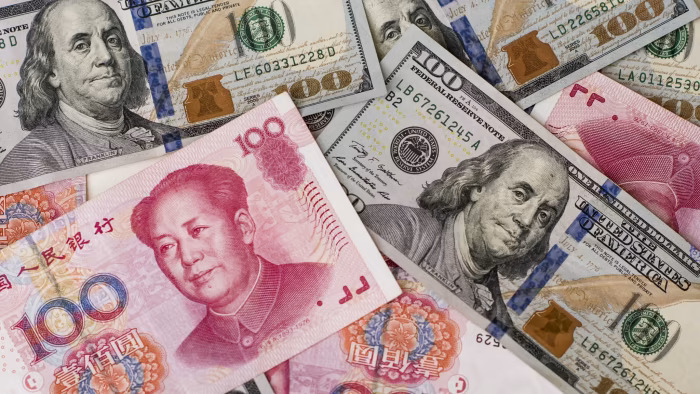
The global economic battlefield just got hotter. The ongoing trade war between the United States and China has intensified sharply, with major developments emerging in both policy and economic performance. While China surprised analysts with a stronger-than-expected economic performance in the first quarter of 2025, tensions with the U.S. over trade practices are spiraling into a full-blown economic standoff.
China’s Economy Shows Strength—But With Caveats
In Q1 2025, China’s GDP grew by 5.4%, outpacing the 5.1% forecast and signaling resilience amid geopolitical pressure. Retail sales rose by 5.9%, showing a recovering domestic demand, while industrial output surged by 7.7%, driven by strong exports and renewed manufacturing activity.
However, not all sectors showed growth. Property investment—a key component of China’s economy—plunged 9.9%, reflecting ongoing challenges in the real estate market. As a result, economists are tempering expectations, forecasting overall GDP growth for the year at 3.4%.
U.S. Escalates Tariffs, Sparking Backlash
Amid accusations of unfair trade practices and technology theft, the Biden administration dramatically raised tariffs on Chinese imports. The total tariff burden now stands at a staggering 145%, including a 120% levy on small parcels under $800, a move seen as targeting Chinese e-commerce giants that cater to U.S. consumers directly.
The White House has warned that it may hike tariffs even further, possibly reaching 245%, if China continues what it calls “manipulative trade behavior” and fails to reform industrial subsidies and intellectual property enforcement.
Hong Kong Responds: U.S. Shipments Halted
In a direct retaliatory move, Hong Kong’s postal service announced it will suspend all shipments to the United States starting April 27, citing “unviable logistics and economic pressure” resulting from the increased tariffs. This decision will disrupt businesses and consumers on both sides of the Pacific, particularly small enterprises relying on cross-border e-commerce.
Beijing Eyes Stimulus as Trade War Drags On
In response to growing external pressure and internal economic fragility, Beijing is planning new stimulus measures to prop up investment and stabilize the real estate sector. Officials are expected to unveil a combination of infrastructure investment, tax incentives for manufacturers, and support for tech and green industries.
The Ministry of Commerce also stated it is exploring “countermeasures” to U.S. tariffs and will “firmly defend China’s economic sovereignty and interests.”
Global Ramifications
The implications of this deepening trade conflict are vast. Supply chains could become more fragmented, with companies seeking alternatives to China for manufacturing. Inflation could rise in the U.S. due to higher import costs, and global trade norms may shift further away from multilateralism toward economic nationalism.
As the U.S. and China continue to exchange economic firepower, the world watches closely. The next chapters of this trade war will not only shape the two superpowers but could redefine the future of globalization itself.
Sources: Bloomberg, NYTimes, AP News, Reuters.